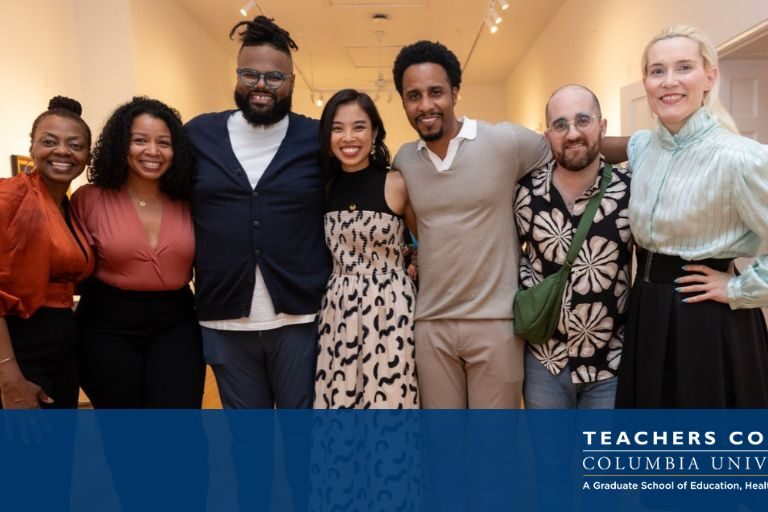Along with healthcare providers, educators have borne the brunt of the nation’s grief and disruption created by the COVID-19 pandemic. Teachers comforted and counseled young students through trials and hardships, while balancing stresses in their own lives. At the same time, they were tasked with radically shifting their instruction from in-person to online.
For teachers and students of color, these challenges were amplified by racial protests across the country sparked by the police killing of George Floyd in May 2020. That very same month, Angel Acosta, an education consultant who has done workshops and seminars for teachers that bridge the fields of leadership, social justice and mindfulness, obtained his doctorate in Curriculum & Teaching from Teachers College. The first-generation, Black Dominican-American recalls feeling “incredible levels of anger and a deep desire to do something proactive” at the time.
Such emotions inspired Acosta to create the Acosta Institute, an online digital learning hub that consults with educators and organizations to promote what he calls “healing-centered education,” a term that combines social and emotional learning, restorative justice, racial literacy and trauma-informed approaches to teaching.
Acosta’s work is grounded in his doctoral dissertation, in which he explored healing-centered education. “Wounded Healers,” a project of the Acosta Institute, is a multi-media community storytelling project that aims to cultivate the wellbeing of teachers, so they can get help healing themselves and, in turn, help their students to heal.
“Angel’s work is a powerful example of the type of innovative, timely and relevant scholarship that TC incubates. It’s an exciting time to invite people to heal,” shares Professor Yolanda Sealey-Ruiz. (Image: KB Visualz)
The first installation of the project included an exhibition at TC’s Macy Gallery, featuring large-scale, framed photographic portraits of nine New York City educators and community leaders who use healing-centered teaching methods based primarily on concepts from Greek mythology and Jungian psychology, and who have dedicated their work and lives to helping children heal and thrive. The portraits, by Paper Monday, were exhibited from June 26 – July 6 at Macy Gallery.
“In a time of transition and turmoil,” Acosta writes, “these practitioners are deeply aware of the impact of racial and socio-economic trauma on their communities and know the importance of engaging in their own personal healing work while implementing healing-centered teaching methods in their work as educators.”
The next phase of the project, which is funded by the Garrison Institute, will be the creation of K-12 and higher-education curriculum “based on each wounded healer’s approach and to give access to that to the broader community,” Acosta says. The Institute plans annual rounds of new portraits, and to publish a book about the wounded healer.
Ian P. Levy (left) and Maria Tan (right) pose with their portraits at the Wounded Healers exhibit.
(Image: KB Visualz)
(Image: Angel Acosta)
“I think talking about healing in education in this deliberate way exemplifies all of our work at TC and is significant to our times as we seek healing following the pandemic,” says said Yolanda Sealey-Ruiz, professor of English Education at Teachers College and second chair of Acosta’s dissertation committee, whose portrait is one of the images displayed in the exhibition. “Angel’s work is a powerful example of the type of innovative, timely and relevant scholarship that TC incubates. It’s an exciting time to invite people to heal.”
— Patricial Lamiell
Published Tuesday, Aug 8, 2023

